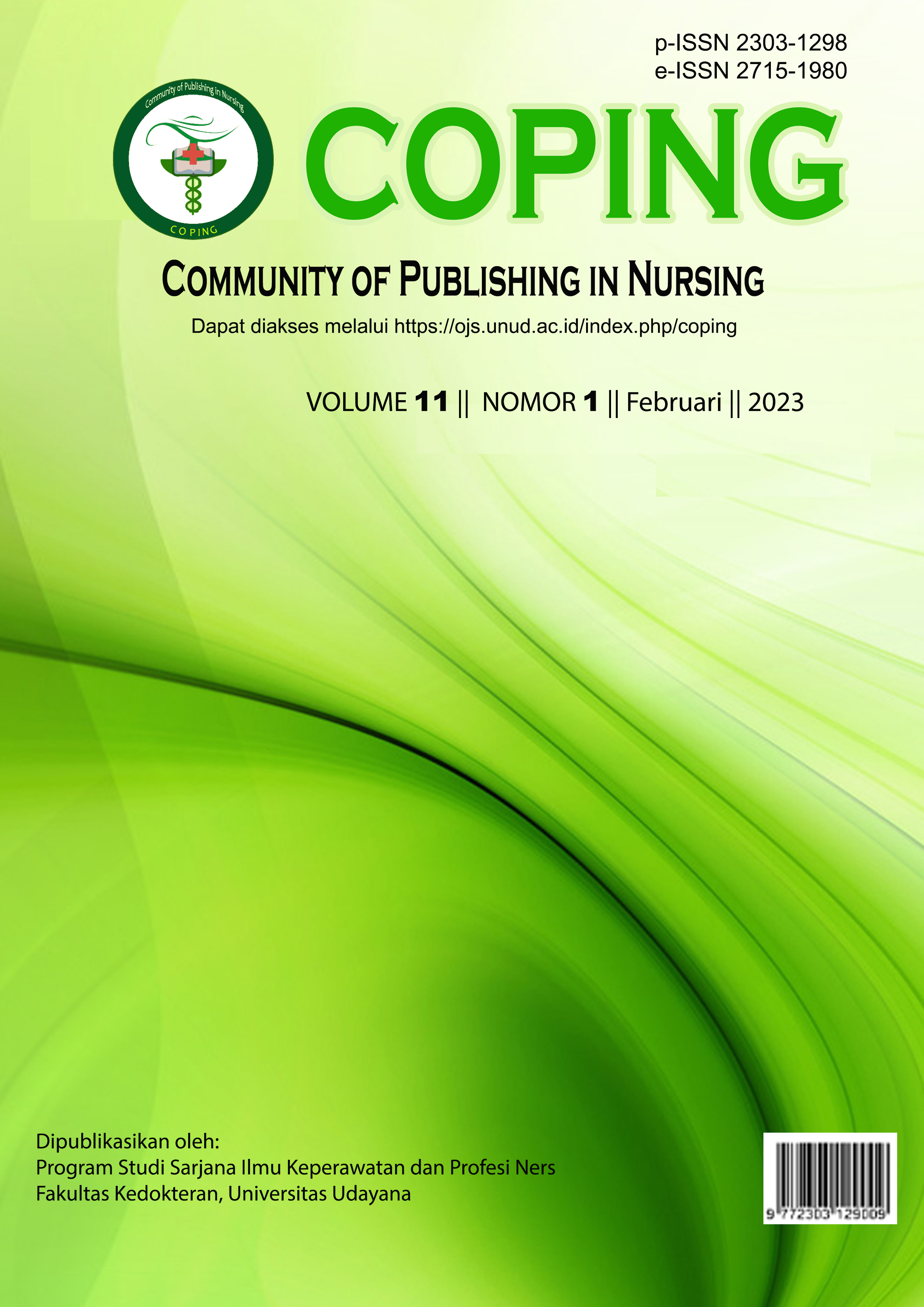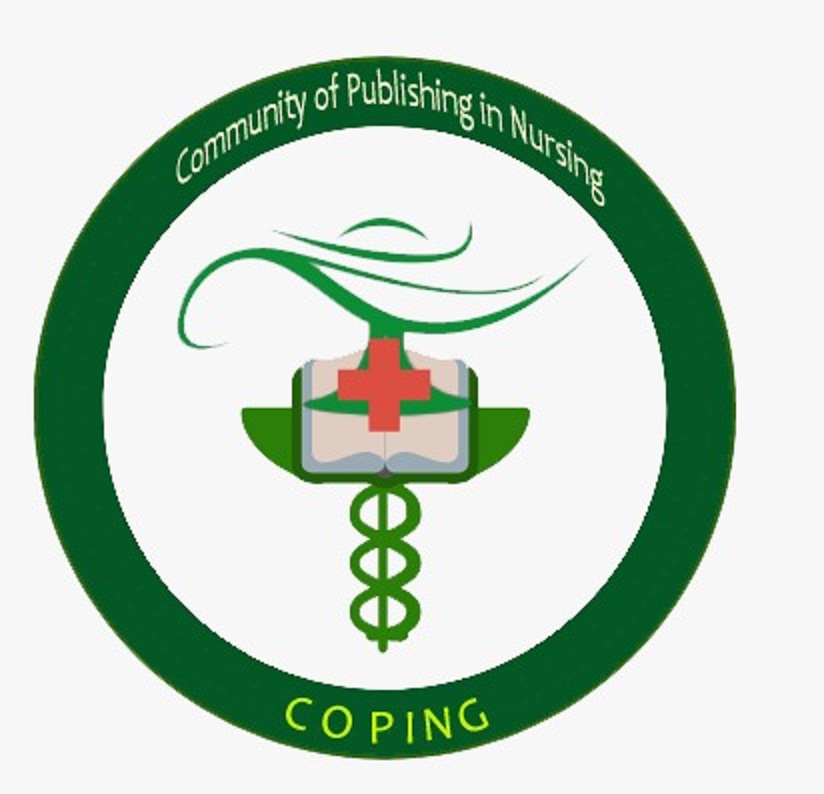PENGEMBANGAN MOBILE APLIKASI OBAT ORAL ANTI KANKER DALAM PENERAPAN PATIENT CENTER CARE: A LITERATUR REVIEW
Abstract
Obat anti kanker banyak dikembangkan dalam bentuk sediaan oral. Dilaporkan jenis sediaan obat oral anti kanker yang sering digunakan untuk kasus kanker terbanyak di dunia adalah golongan hormonal, target mutasi genetik, maupun jenis sitotoksik. Banyak keuntungan sediaan obat oral anti kanker ini untuk pasien, tenaga kesehatan, maupun penyedia obat. Namun masih ada tantangan dan hambatan seperti kurangnya pemahaman pasien tentang obat, rendahnya kepatuhan menjalani terapi kanker oral, dan terbatasnya jumlah tenaga kesehatan dibandingkan dengan kecepatan peningkatan kasus kanker. Tujuan penelitian ini untuk mengetahui pengembangan mobile aplikasi Oral Agent for Cancer (OAC) pada keperawatan yang berfokus ke pasien. Penelitian ini menggunakan metode literatur review. Pencarian artikel melalui penelusuran empat database, yaitu ClinicalKey Nursing, ScienceDirect, EBSCOhost, dan Scopus, menggunakan kata kunci aplikasi seluler, Oral Agent for Cancer, Patient Center Care, dan Teknologi. Hasil tinjauan literatur menunjukkan bahwa penggunaan mobile aplikasi OAC meningkatkan motivasi pasien, aktif berpartisipasi dalam terapi, efisien biaya, efektif waktu, dan kemandirian pasien dalam tatalaksana efek samping. Dari sisi perawat, walaupun jumlah tenaga terbatas, namun menunjukkan mutu asuhan keperawatan berkualitas optimal. Penggunaan mobile aplikasi OAC efektif diterapkan dalam asuhan keperawatan yang berpusat pada pasien.
Downloads
References
Fennimore, L. A., & Ginex, P. K. (2017). Oral Agents for Cancer Treatment: Effective Strategies to Assess and Enhance Medication Adherence. Nursing Clinics of North America, 52(1), 115–131. https://doi.org/10.1016/j.cnur.2016.10.007
Globocan (2022). Global Burden of Cancer Study, Data Penderita Kanker Dunia.
Health, G. (2021). Acceptability, Utility, and Cost of a Mobile Health Cancer Screening Education pplication for Training Primary Care Physicians in India.
Iribarren, S. J., Cato, K., Falzon, L., & Stone, P. W. (2017). What is the economic evidence for mHealth? A systematic review of economic evaluations of mHealth solutions. PLoS ONE, 12(2), 1–20.
https://doi.org/10.1371/journal.pone.01705 81
IARC. (2022). International Agency for Research on Cancer https://gco.iarc.fr/
Ki, J., Jo, S., Cho, K., Park, J., Cho, J., & Jang, J. (2021). Effect of Oral Health Education Using a Mobile App (OHEMA) on the Oral Health and Swallowing-Related Quality of Life in Community-Based Integrated Care of the Elderly: A Randomized Clinical Trial
Karaaslan-Eşer, A., & Ayaz-Alkaya, S. (2021). The effect of a mobile application on treatment adherence and symptom management in patients using oral anticancer agents: A randomized controlled trial. European Journal of Oncology Nursing, 52(April). https://doi.org/10.1016/j.ejon.2021.101969
Kaye, R., Rosen-zvi, M., & Ron, R. (2020). Digitally-Enable Remote Care for Cancer Patients. Seminars in Oncology Nursing, 36(6), 151091.https://doi.org/10.1016/j.soncn.2020.151091
Melnyk, B., M., & Fineout-Overholt E. (2019). Evidance-based Practice in Nursing and Healthcare. Philadelphia: Wolters Kluwer.
Nayak, P. P., Nayak, S. S., Sathiyabalan, D., & Aditya, N. K. (2018). Assessing the Feasibility and Effectiveness of an App in Improving Knowledge on Oral Cancer-an Interventional Study. 1250–1254. https://doi.org/10.1007/s13187-017-1239-y
Pplications, A., & Earable, W. (2022). Telehealth, Mobile Applications, and Weareble Devices are Expanding Cancer Care Beyond Wall. 34(2), 118–125. https://doi.org/10.1016/j.soncn.2018.03.002
Rajan, J. P., Rajan, S. E., Martis, R. J., & Panigrahi, B. K. (2020). Fog Computing Employed Computer Aided Cancer Classification System Using Deep Neural Network in Internet of Things Based Healthcare System.
Rochmawati, E., & Putranto, D. (2022). Mobile Application-Based Education to Improve Family Caregivers’ Readiness: Feasibility Study. Journal for Nurse Practitioners. https://doi.org/10.1016/j.nurpra.2022.08.023
Saunders H., et al (2019). Practicng Healthcare Professionals Evidance-based Practice Competencies, Worldviews Evid Based Nurs;16: pp.176-183.
Semerci, R., Akgün, M., & Tas, C. (2022). European Journal of Oncology Nursing The effect of using an interactive mobile application for the management of chemotherapy-induced nausea and vomiting in children: Randomized controlled study. 58 (December 2021). https://doi.org/10.1016/j.ejon.2022.102121
Viitala, A. (2022). European Journal of Oncology Nursing Online follow-up with a mobile device improves incurable cancer patient’s coping – A qualitative study. 55 (May 2021). https://doi.org/10.1016/j.ejon.2021.102047

This work is licensed under a Creative Commons Attribution-NonCommercial 4.0 International License.







